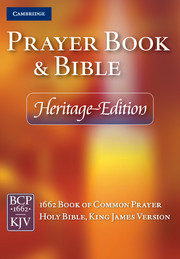- Joined
- Jan 31, 2012
- Messages
- 6,598
- Reaction score
- 201
- Points
- 63
bibleprotector said:subllibrm said:But if I understand your project correctly, you didn't write anything original.
There's a lot of original writing on my website, I have written blog articles, forum stuff, booklets, books, etc.
subllibrm said:You compiled what you decided were the pure(est) variants of the KJV and declared that to be the best of them all.
Incorrect. It has been generally recognised that the Cambridge Edition "is the best", and there is an electronic copy of a specific Cambridge Edition which has been accepted which is presented on my website without any typographical discrepancy.
subllibrm said:I'm still not sure what authority you have to make such declarations. Of course that was the point FSSL was making back when he asked about the discrepancy in your handling of spirit and Spirit. It matters when you say it matters and doesn't when you say it doesn't. Now that is some modernist (as you have been using the, otherwise undefined, term) thinking right there.
You are misrepresenting everything. The fact is that the word "Spirit"/"spirit" was not uniform in its presentation in early editions of the KJB, which is an entirely separate issue to the deliberate alterations being made in this regard in very recent decades.
The lack of standardisation in presentation of the printed English language in early years should not be confused with the deliberate changes made by some for theological reasons in recent years.
To the bolded red above: By whom?
You guys talk about the "Authorized Version" as if that means something to God. It was authorized by a king for political purposes. All translations were "authorized" by someone. Who "authorized" you and these folk who "generally accepted" this as the perfectest of the perfect? Where is the paperwork indicating this "authority"?
Avery went to great lengths to explain that pure doesn't mean pure, just purer. Now you are saying that this particular iteration is the pure(est/er) of the pure. For that to be the case, you would have to admit that all other iterations are "less" pure than the one that you have (without any authorization) declared to be the really pure version of all the pure versions. When it comes to logic, you guys can't even get out of your own way.

